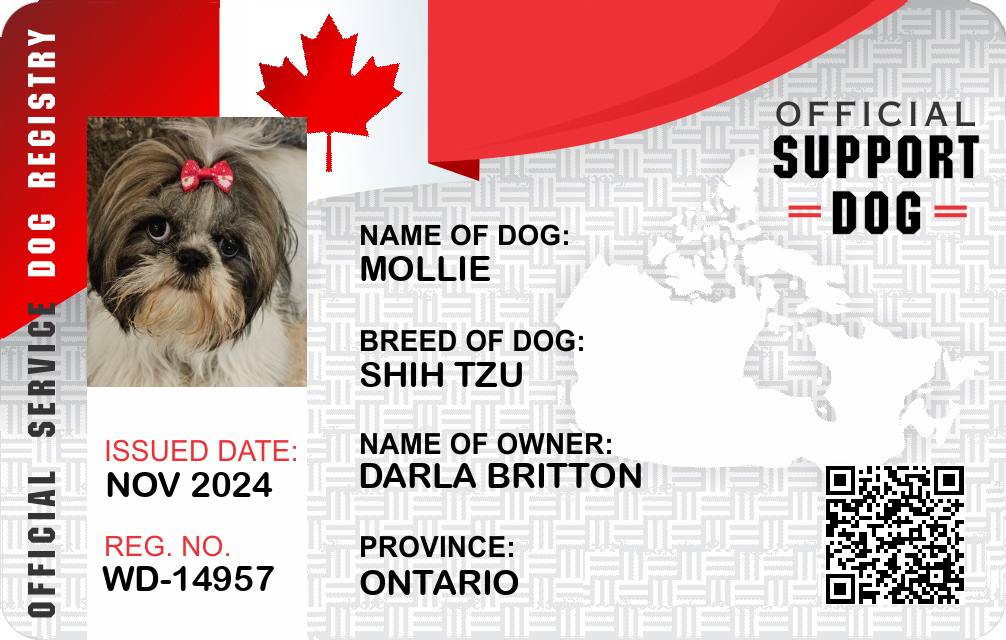Pennsylvania Emotional Support Animal Laws
Get Your Documents
Example State Cards


Overview of ESA and Legal Definitions in Pennsylvania
What is an Emotional Support Animal?
An Emotional Support Animal (ESA) provides companionship, relieves loneliness, and can help with depression, anxiety, and certain phobias. These animals, which can range from dogs and cats to more unconventional choices like birds or ferrets, are not trained to perform specific tasks for a person who has a disability, unlike service animals. Instead, their primary role is to offer emotional comfort. While pets and ESA may appear similar, an ESA is specifically recognized for its therapeutic benefits under mental health care, and this recognition is crucial when considering legal protections and rights.
How ESA Differ from Service Animals
Service animals are specially trained to perform tasks for individuals with disabilities, such as guiding people who are blind, alerting those who are deaf, or assisting during a seizure. Emotional Support Animals do not receive this specialized training; their presence is instead the key to their therapeutic benefits. Importantly, service animals are covered under the Americans with Disabilities Act (ADA), which provides them with broader access rights that ESA do not enjoy. ESA fall under different legal standards, primarily governed by the Fair Housing Act (FHA) and the Air Carrier Access Act (ACAA).
Key Federal Laws Affecting ESA (e.g., FHA, ACAA)
Federally, ESA are recognized under the Fair Housing Act (FHA), which mandates that they must be allowed to accompany their owners in housing that doesn’t typically allow pets. This law prevents housing providers from discriminating against individuals who require an ESA due to a disability. The Air Carrier Access Act (ACAA) previously extended similar protections for airline travel; however, changes implemented in 2021 removed ESA from this protection, reclassifying them as regular pets under most airline policies. This federal context is critical for understanding how ESA laws apply within Pennsylvania.
State-Specific ESA Laws in Pennsylvania
Housing Rights and Responsibilities
In Pennsylvania, as in other states, the Fair Housing Act overrides local “no pets” policies for ESA, provided tenants can demonstrate a documented need. This means landlords must offer reasonable accommodations for residents with ESA without imposing pet fees or deposits. However, ESA owners must still comply with all other standard lease requirements, such as maintaining a clean living space and ensuring the animal does not disrupt the community. Additionally, owners may need to provide documentation from a healthcare professional outlining their requirement for an ESA.
Public Access and Accommodation
Unlike service animals, emotional support animals do not have the same access rights under Pennsylvania law when it comes to public accommodations. ESA are not entitled to accompany their owners into restaurants, stores, or other public places where pets are not typically allowed. This distinction underscores the different roles of ESA versus service animals and highlights the importance of understanding these limitations to avoid potential legal issues or misunderstandings.
Transportation and Travel Rules
Transportation and travel rules for ESA have significantly changed, particularly following the 2021 amendments to the Air Carrier Access Act. In Pennsylvania, ESA owners must adhere to each transport provider’s pet policies. While ESA once had guaranteed rights to accompany their owners in an aircraft cabin, they are now classified as regular pets, subject to carrier-specific guidelines and typically requiring payment of pet fees. Ground transportation, similarly, will base travel allowances on the individual policies of the service provider.
Employment and Workplace Considerations
The rights of ESA within the workplace are more restricted than those of service animals. While service animals can often be accommodated as a reasonable adjustment for disabilities under the ADA, ESA don’t enjoy this same policy protection. In Pennsylvania, employers are not legally obligated to allow ESA into the workplace. However, employees can discuss their needs with their employer and may seek the inclusion of an ESA as part of a reasonable accommodation request, although this is ultimately at the employer’s discretion.
Documentation, Requirements, and Processes in Pennsylvania
ESA Letters and Who Can Issue Them
An ESA letter, an essential document for asserting one’s rights under ESA laws, must be issued by a licensed mental health professional. In Pennsylvania, valid ESA letters need to specify that the individual has a mental health condition recognized in the Diagnostic and Statistical Manual of Mental Disorders (DSM) and that the presence of the ESA is necessary for the individual’s mental health care. Psychologists, psychiatrists, clinical social workers, and other licensed mental health professionals can issue these letters.
Registration, Certifications, and Common Misconceptions
There is no official registry for ESA at either the federal or state level. Websites and online platforms offering ESA “certifications” or “registrations” for a fee are misleading, as legal rights are solely based on a properly issued ESA letter. These services often propagate misconceptions, creating confusion among owners regarding the actual documentation required. Instead, the focus should remain on obtaining legitimate documentation from a licensed mental health professional.
Landlord, Business, and Provider Verification Rules
Landlords and housing providers can request verification of an ESA requirement but cannot ask for specific details about an individual’s condition. They might verify the authenticity of the documentation by contacting the issuer, ensuring it meets the necessary legal requirements. It is important for ESA owners to be prepared to provide legitimate, current documentation if requested, ensuring all letters are up to date and ideally renewed yearly to reflect ongoing necessity.
Rights, Limitations, and Legal Risks
Rights ESA Owners Have in Pennsylvania
ESA owners in Pennsylvania primarily benefit from housing protections under the FHA, which guarantees accommodation and prohibits discrimination based on the need for an emotional support animal. The right to live with an ESA under these protections is paramount, given that housing security directly impacts personal well-being and stability.
Limits on ESA Protections and Common Restrictions
While ESA are covered by the FHA for housing, they do not possess the same broad access rights under the ADA as service animals. Common restrictions may include access to public areas and certain transportation sectors, reinforced by the need for ESA paperwork to assert rights under the FHA. Owners should be vigilant to avoid mistakenly presenting an ESA as a service animal, which can create legal conflicts.
Penalties for Fraud or Misrepresentation
Misrepresentation of an ESA as a service animal can lead to legal penalties, including fines. This kind of fraud undermines the integrity of genuinely needed ESA accommodations and is viewed seriously in Pennsylvania. To prevent facing legal issues, ESA owners should clearly understand the roles and rights pertaining to their animals and refrain from presenting misinformation to landlords, businesses, or authorities.
Practical Guidance for ESA Owners in Pennsylvania
How to Qualify for an ESA Legitimately
To legitimately qualify for an ESA, individuals must have a diagnosed mental health condition and obtain an ESA letter from a qualified mental health professional. Begin with a thorough evaluation to ascertain need, and collaborate with a healthcare provider to receive appropriate documentation. This process not only secures ESA rights but supports mental health treatment plans.
How to Talk to Landlords, Airlines, and Employers
Clear, factual communication with landlords, airlines, and employers is crucial. Presenting a concise, well-organized ESA letter can aid discussions, particularly if questions arise. Transparency about your needs increases the likelihood of fostering understanding and cooperation. Scripted responses or rehearsals can be useful to ensure all relevant points are covered during sensitive discussions.
Summary of ESA Laws in Pennsylvania
- ESA owners primarily benefit from FHA housing protections, allowing them to live with their support animals regardless of typical pet policies.
- Public access rights are limited for ESA compared to service animals; ESA are not covered by the ADA.
- Federal laws such as the FHA provide overarching guidance on housing rights, while local Pennsylvania practices must align with these protections.
- ESA are not automatically granted workplace accommodations; discussions with employers are necessary for potential allowances.
- ESA letters must come from licensed mental health professionals; no official registry or certification is recognized by law.
- Misrepresenting an animal as an ESA or service animal can result in legal penalties, emphasizing the need for accurate representation and documentation.
- Understanding legal definitions, maintaining up-to-date documentation, and engaging in clear communication with housing providers are foundational components for ESA owners.
This guide aims to help residents of Pennsylvania navigate the complex landscape surrounding emotional support animals, ensuring their rights are upheld, and any potential legal issues are minimized.
Get Your Documents
Example State Cards













